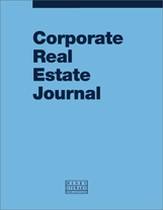The response to noise distraction by different personality types : An extended psychoacoustics study
Abstract
Noise distraction remains a leading complaint among office workers worldwide. The purpose of this paper is to identify personal factors, including personality traits, that underpin noise distraction of office workers in order to mitigate noise and improve wellbeing and performance. Following on from a previous research study, the same survey methodology has been conducted in a further 11 offices and the larger dataset was used to substantiate the original findings. The new data set consists of 2,145 responses across a range of organisations and countries in real-world settings. The survey consists of eight sections of questions including The Big 5, or OCEAN, personality profile assessment along with ratings of noise and distraction. Nearly 50 per cent of the respondents consider workplace noise to adversely affect their wellbeing and increase stress. As found in the previous study, 67 per cent of respondents rated the effect of noise on performance as negative and a mean estimated impact on work performance was -6 per cent. Contrary to the original study, no statistically significant differences in noise performance between introverts and extroverts were initially revealed. Significant results were, however, found once those in private offices were excluded, such that introverts are more negatively affected by noise when in open plan offices. Noise ratings differed significantly depending on job role, with data processors, analysts and researchers performing less well than the other job roles combined. Furthermore, data processors and analysts were found to be significantly more introverted than other job roles, compounding their response to noise. The research revealed key variables often overlooked in reducing noise distraction in the workplace. Further investigation is required of this multi-layered, complex subject; however, the research demonstrates the need to account for several key personal variables fundamental to designing good acoustic working environments that support wellbeing and performance.
The full article is available to subscribers to the journal.
Author's Biography
Nigel Oseland is an environmental psychologist, workplace strategist, researcher, international speaker and published author with 11 years’ research and 21 years’ consulting experience. He advises occupiers on how to redefine their workstyles to provide workplaces that enhance individual and organisational performance. Nigel specialises in strategic briefing to create workspaces that improve collaboration, creativity and concentration while meeting psychological needs. To support his advice on workplace design, Nigel conducts independent research on key topics relevant to the workplace community, including psychoacoustics, environmental conditions, personality and personal preferences, interaction and collaboration and workplace loneliness.
Paige Hodsman is an office acoustics specialist and the Saint-Gobain Ecophon concept developer for offices in the UK and Ireland. She is a published author and writes extensively on the subject of psychoacoustics in the context of office workers’ responses to sound stimulus. Working in the field of commercial design since 1997, her project experience spans the continental US to the UK and across mainland Europe, including collaboration projects globally. Paige regularly engages with high-profile organisations to help develop in-house acoustic guidelines, strategies and practical office acoustic solutions. She conducts surveys and administers Ecophon’s bespoke psychoacoustic tools to help organisations plan for robust acoustic solutions in the early phases of a project.
